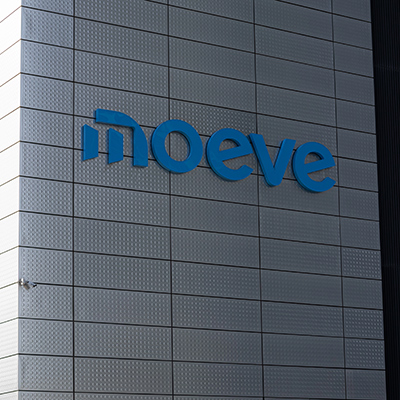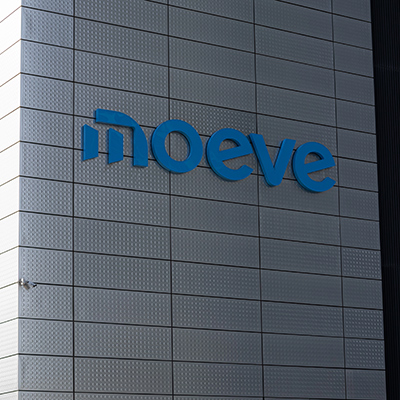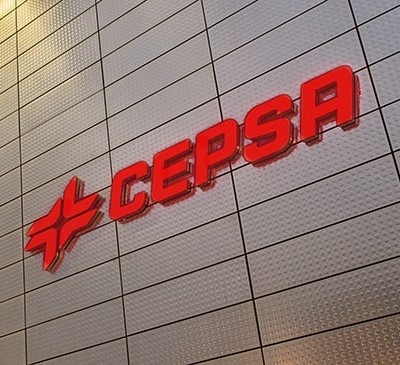- Clean CCS EBITDA was €742m in H1’23 versus €1,742m in H1’22, driven by lower Upstream volumes following the sale of the Group’s Abu Dhabi assets and lower crude prices. Refining margins remained healthy, although below those of H1’22
- Clean CCS Net Income reached €145m in the first half of the year
- Cash flow from operations, excluding non-recurring items, stood at €580m versus €434m in H1’22
- Sustainable capex made up 39% of spending for the first half of the year, with total capex increasing to €276m (€218m in H1’22), as Cepsa continues to execute on its Positive Motion strategy
- Cepsa contributed €2,185m in taxes in Spain, of which €1,265m were borne and €920 collected on behalf of the Spanish tax authorities
- Cepsa’s Net Debt was reduced to €2.5bn, with leverage ratio increasing to 1.4x driven by lower EBITDA following the Abu Dhabi assets sale. Liquidity remains solid at €4.1bn, covering 4.3 years of debt maturities
- Cepsa advanced with its Positive Motion strategy, announcing plans to build the largest green ammonia plant in Europe with a €1bn gross investment and sealing new alliances such as with Yara Clean Ammonia of Norway and Gasunie of the Netherlands to connect southern and northern Europe with green hydrogen
- Since July, the company has made further progress with Positive Motion, initiating the sale of sustainable aviation fuel (SAF) at four of Spain's main airports and receiving recognition by Moody’s as one of the top three in its sector in Europe with the best ESG (environment, social and governance) policies and performance
Maarten Wetselaar, Cepsa CEO
“Our results for the first half of the year are significantly impacted by poorly designed windfall taxes that depress our earnings and cash generation in Spain, where Cepsa is undertaking a deep transformation from a traditional oil and gas company to one at the forefront of the European energy transition. We have been making progress with our Positive Motion strategy, strengthening our position within key energy markets in Europe and forging new alliances to lay the foundation for our Company’s leadership in the fields of clean energy and e-mobility.
International recognition of Cepsa’s pioneering energy transition strategy encompassing the Andalusian Green Hydrogen Valley and the North-South green hydrogen corridor is clearly growing. We were honored to host Their Majesties King Felipe VI of Spain and King Willem-Alexander of the Netherlands in June in Algeciras, where we announced plans to build Europe’s largest green ammonia plant and agreements with Yara Clean Ammonia and Gasunie to make the green hydrogen corridor from southern Spain to Rotterdam a reality. Through alliances such as these, we are building the ecosystem we need to accelerate the roll out of green fuels for our customers across Europe and ensure clean and independent energy supply for the continent.”
Market Environment
Crude prices in Q2’23 followed a largely flat trend from the previous quarter, averaging 78.4 $/bbl (81.3 $/bbl in Q1’23), mainly as a consequence of persistent doubts on the global oil demand recovery, as OPEC+ reactive cuts to its production quotas have so far failed to increase prices substantially.
Refining margins reduced during the quarter, with Cepsa’s average margin at 7.6 $/bbl in Q2’23 (11.0 $/bbl in Q1’23). Refining margins declined on the back of lower crack spreads, partially offset by normalized energy costs.
Gas prices continued their sharp fall in the period averaging €35.1/MWh in Q2’23 (€54.1/MWh in Q1’23) as the demand and supply balance, which was disrupted following the Ukraine crisis, continued to normalise. Storage levels in Europe remain high putting more pressure on gas prices to fall as demand remains subdued, outweighing supply and weather-related risks in the near term. Supply flexibility remains tight hence prices for the 2023-2024 winter could still revert back to high levels depending on weather in Asia and Europe.
Spanish pool prices for electricity decreased from the previous period, mainly as a result of the decline in European natural gas prices, and continued the short-term downward trend, with an average of 80.3 €/MWh in Q2’23 (96.4 €/MWh in Q1’23).
Results Breakdown
Cepsa’s three main businesses had a resilient performance during the second quarter of the year, against the backdrop of a challenging market environment with lower crude prices and declining refining margins, although still in a healthy range. Net debt reduced despite the impact of the extraordinary tax imposed on energy companies and higher capex as Cepsa continued to deliver its Positive Motion strategy, boosting sustainable projects to facilitate a successful energy transition in Europe. By division:
- Energy. CCS EBITDA for the segment during Q2’23 stood at €114m (€211m in Q1’23), with Cepsa’s Energy Parks business performing slightly weaker compared to the previous quarter due to lower margins. Refining margins during Q2’23 averaged 7.6 $/bbl (11.0 $/bb in Q1’23) with Cepsa’s utilization rate growing up to 91% vs 84% in Q1’23. Commercial sales performed well, above Q1’23, on the back of enhanced Spanish fuel demand.
- Chemicals. Results in line with Q1’23, showing resilience despite global demand cooling due to higher inflation rates, which was partially offset by lower energy costs that boosted margins. CCS EBITDA of €60m (€64m in Q1’23).
- Upstream. The change of perimeter following the Abu Dhabi assets sale naturally impacted the results and operations, with a decline already expected. The disposal entailed a meaningful cash-in and will also allow for future capital reallocation to reinvest in the energy transition, while maintaining some exposure to Upstream business allowing the Company to gain synergies and offset risks. CCS EBITDA stood at €58m in Q2’23 (€310m in Q1’23) with volumes at 32.4 kbopd (71.8 kbopd in Q1’23), also impacted by scheduled maintenance works in Algeria. Cepsa maintains a solid Upstream asset base, with very low breakeven prices and enhanced cash conversion after the divestment.
The second quarter of 2023 saw Cepsa continue its significant progress towards delivering its Positive Motion strategy.
In the area of green hydrogen, Cepsa unveiled plans to build the largest green ammonia plant in Europe with a production capacity of 750,000 tons, entailing a gross €1 billion investment, and signed strategic partnerships with Yara Clean Ammonia and Gasunie to promote the first Green Hydrogen Maritime Corridor between southern and northern Europe. The plant and the partnerships were announced in the presence of the kings of Spain and the Netherlands, who showed their support for the green hydrogen corridor between the ports of Algeciras and Rotterdam to significantly decarbonize European industry and maritime transport.
Among other green hydrogen partnerships, the Company signed an agreement with GETEC, one of Europe's leading energy service providers and contracting specialists for industry and the real-estate sector with regional platforms in Germany, the BeNeLux, Switzerland and Italy, to supply green hydrogen and its derivatives for use by GETEC’s industry clients.
In the realm of biofuels, Cepsa awarded the engineering contract for its 2G biofuels plant in Huelva, to be built as part of a joint venture with Bio-Oils (Apical’s biofuels entity in Huelva). On completion, the facility will be the largest 2G biofuel plant in southern Europe producing 500,000 tons of renewable diesel and SAF annually to contribute to the decarbonization of air, maritime and land transport, enabling a CO2 emissions reduction of up to 90% compared to the use of traditional fuels.
Further strengthening Cepsa’s position in the SAF market, the Company announced partnerships with Wizz Air and Volotea to accelerate the decarbonization of air transport and in July began selling SAF at four of Spain's main airports (Madrid, Barcelona, Palma de Mallorca and Seville) to all customers who request it, becoming the first company to offer biofuel for aviation on a permanent basis at those airports.
As part of the exciting advances in using biofuels in transport, Cepsa announced a partnership with Maersk and Renfe to carry out the first 2G biofuels test in Spanish rail transport. For three months, the companies will test renewable diesel produced at Cepsa’s energy park in Palos de la Frontera (Huelva), as a fuel for one of Maersk’s freight train customer's shipments, covering weekly round trips on the Algeciras-Cordoba segment of the Algeciras-Madrid route.
Regarding the supply of renewable power, Cepsa and Grupo Ibereólica Renovables signed an agreement that will enable Cepsa to support renewable electricity supply in the long term for its green hydrogen generation plants, located in the Company's Energy Parks in Andalusia, as well as for its network of service stations. This renewable energy will come from a portfolio of up to 5 GW projects, mainly wind, which are being developed by Grupo Ibereólica Renovables and are at an advanced stage of planning.
In Cepsa’s chemicals business, the Company announced in June that it will build, in Huelva, the world's first plant for the sustainable production of isopropyl alcohol (IPA), a product used in hydroalcoholic gels as well as in other industries such as the medical-pharmaceutical, electronic and automotive industries. Production will be from renewable or circular materials, which will make it the most competitive, innovative, and environmentally friendly facility of its kind in the world.
Finally, according to the latest results of Moody's ESG (environment, social and governance) assessment, Cepsa was recognized as one of the top three companies in its sector at a European level with the best ESG policies and performance.



